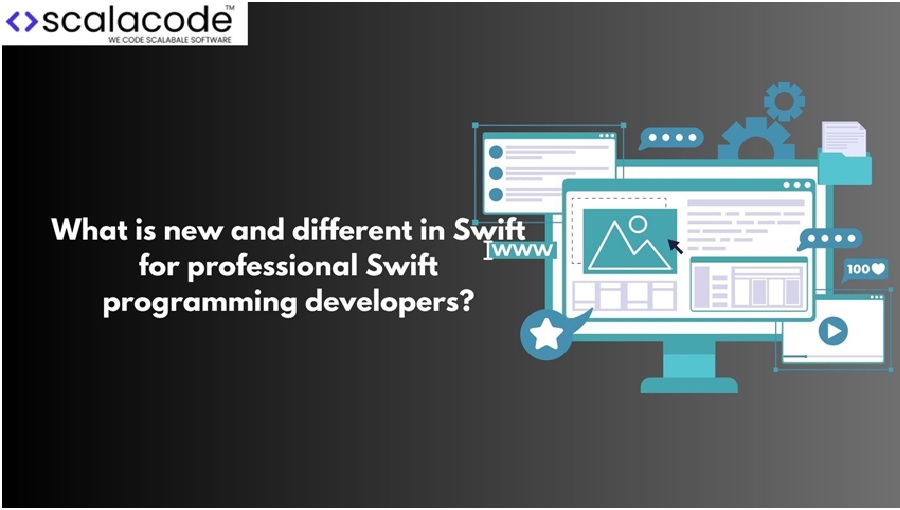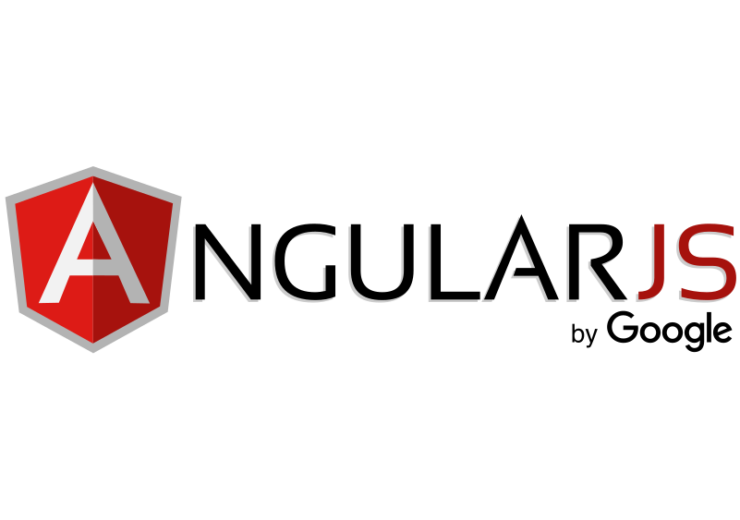Apple’s Swift Programming Language: What’s new and different?

If we are not wrong, you know well that Swift is a popular computer language that turns out to be useful for making some great applications for iOS, Apple TV, Apple Watch, and Mac. This programming language is developed to give app creators more freedom than ever when fabricating iOS applications.
What else? This software development tool is very easy to use and open-source too, that makes it easy for any developer to forge an incredible application if they have an interesting idea for the same. But do you know that this programming language is not perfect according to myriads of app developers out there?
Yes, many experienced swift programming developers say that it needs improvements in certain areas along with frequent update for smooth operation. And that’s where new releases come in.
So, today we are going to have a discussion on the latest version of Swift and the enhancements that it comes with, in this prose. Then, let’s begin with:
What are some instrumental statistics about Swift that all Swift programming developers must know?
—————————————–
- Apple revealed Swift computer language in 2014 as an advanced replacement to Objective-C. And in the matter of just a few months, Swift became an extremely important language for forming various applications for iOS and macOS computers.
- According to a survey performed by a famous public Q&A platform, Swift is regularly utilized by 5% of software developers.
- Swift has grabbed the 14th position on the list of most popular computer languages in the market.
- In terms of operation, Swift is 2.6 times faster than Objective C and 8.4 times faster than Python.
Hence, if you want to use Swift language for your iOS app development due to all the reasons we discussed above, it is a smart idea to hire Swift developers for such tasks.
What is new and different in Swift for professional Swift programming developers?
—————————————–
 1. Language and standard library
1. Language and standard library
Swift 5.8 allows you to kick off preparing your projects with the help of upcoming features and functionalities for Swift 6. Just so you know, all incoming features are disabled by default. To enable any function that you like, you need to pass the compiler flag “-enable-upcoming-feature” followed by the identifier of that function.
What’s more? The seasoned Swift programming developers say that feature identifiers can also be tapped in source code by making the most of “#ifhasFeature(FeatureIdentifier)” But the benefit? Well, it ensures the code can still compile with previous tools where the incoming feature is not present at the moment.
Swift 5.8 comprises many incoming features for the below-mentioned Swift evolution proposals:
- SE-0274: Concise magic file names (ConciseMagicFile)
- SE-0286: Forward scan matching for trailing closures (ForwardTrailingClosures)
- SE-0354: Regex literals (BareSlashRegexLiterals)
- SE-0335: Introduce existential any (ExistentialAny)
A case in point here is that if you want to create the following file at “/Users/example/Desktop/0274-magic-file.swift” in a module, known as “MagicFile” with “-enable-experimental-feature ConciseMagicFile” will choose to do in the concise format for “#file” and “#filePath” discussed in SE-0274:
print(#file)
print(#filePath)
fatalError(“Something bad happened!”)
The code shown above will generate the following result:
MagicFile/0274-magic-file.swift
/Users/example/Desktop/0274-magic-file.swift
Fatal error: Something bad happened!: file MagicFile/0274-magic-file.swift, line 3
Apart from all this, Swift 5.8 also consists of conditional attributes to drive down the maintenance cost of libraries, which support various variants of Swift tools. “#if” checks are now capable of surrounding attributes on a declaration and a fresh “hasAttribute(AttributeName)” conditional directive can be called on to confirm if the compiler variant has support for the attribute using the name “AttributeName” in the present language mode:
#if hasAttribute(preconcurrency)
@preconcurrency
#endif
protocol P: Sendable { … }
Beyond this, Swift 5.8 brings other language and general library improvements, including but not limited to:
- Unboxing for any arguments to non-compulsory parameters
- Enhanced debug printing for crucial paths
- Local wrapped characteristics in result builders
- And many more
Want to leverage all these enhancements in the Swift programming language? Please hire Swift developers for your iOS app development needs.
2. Available ecosystem
1. Swift-DocC
If you remember, the Swift Programming Language book has been turned into Swift-DocC and made open source, given this particular news was announced in February. With it, some refinements were introduced to Swift-DocC in the form of option directives, which can be brought in use to alter the behavior of your produced documentation.
In addition to that, Swift-DocC has also added some novel directives to build more dynamic documentation pages, including:
- Tab navigators
- Grid-based layouts
If that’s not adequate, you can also customize the look of your documentation pages by customizing:
- Color
- Font
- Icon
The navigation aspect hasn’t left any stone unturned too with quick navigation ability, allowing Swift programming developers to carry out difficult in-project search easily.
And the best part? Swift-DocC also supports documenting extensions to different types from the rest of the modules. This is an opt-in functionality and it is a walk in the park to enable it by adding the “–include-extended-types” flag when tapping the Swift-DocC plugin.
2. SwiftSyntax
Some accomplished Swift programming developers who have used Swift 5.8 say that SwiftSyntax also has a completely re-written parser in its latest release. This re-written parser is implemented completely in Swift rather than counting on the C++ parser to generate a SwiftSyntax tree.
Although you may find the Swift compiler using the earlier parser still, that is implemented in C++, the main aim is to replace the previous parser completely. The new parser has a multitude of pros, such as:
- Depending on SwiftSyntax or contributing to it is now a piece of cake, just like any other Swift package. And you will be surprised to know that this particular thing now reduces the obstacles for entry for new adopters and contributors.
- As per some well-versed Swift programming developers out there, SwiftSyntaxBuilder lets them produce source code in a declarative way with the help of combination of result builders and string interpolation.
- The new parser has been forged with error recovery as the main objective. Also, it is more tolerant of analyzing bugs and generating better error messages.
3. Swift package manager
We have shown below some highlights from the changes made to the Swift Package Manager in Swift 5.8:
- SE-0378: The support for token authentication while interacting with a package registry is now available. The “swift package-registry” command now contains two spick and span subcommands “login” and “logout” to add or eliminate registry credentials.
- SE-0362: Now targets have the ability to specify the incoming language features they need. Also, the “swift” manifest syntax has been extended along with an Application Programming Interface to entail setting “enableUpcomingFeature” and “enableExperimentalFeature” flags at the target level.
- If Swift programming developers want to expose an executable item that involves only a binary target backed by an artifact bundle is now easily feasible. By doing this, the vending binary executables are now allowed as separate packages while remaining independent of the plugins that are utilizing them.
- In Swift packages using tools variant 5.8 or later, Foundation is no longer imported into package manifests completely. But, if Foundation APIs are exploited, the module has to be imported clearly.
4. Windows platform
For your kind information, Swift 5.8 continues to introduce some imperative enhancements to the Windows toolchain. And a few significant tasks that has shifted to this release cycle constitutes:
- The Windows toolchain has lowered down its dependency to some extent on environment variables. DEVELOPER_DIR was earlier required to discover elements. And the good news is that this thing is no longer required. Thus, this job cleans up the installation and allows Swift programming developers to come closer to per-user installation.
- Some part of the starting work has been merged that is focused on supporting C++ interop on Windows. Besides that, it is also available in the toolchain. It entails the work towards producing the Microsoft C++ Runtime in different sections. (msvcprt)
- As far as ICU goes, the hardened Swift programming developers say that it has been changed to static linking. This way, it mitigates the number of files that has to be distributed and also the number of dependencies that a shipping item needs. And just to make you aware, this was made feasible by the elimination of the ICU dependency in the Swift standard library.
- Also, a considerable amount of work to enhance the path handling in the Swift Package Manager has been mixed. Doing this particular thing will help in making Swift Package Manager more powerful on Windows. That’s not all! It will also boost interactions with SourceKit-LSP, if the words of some long-standing Swift programming developers are to be believed.
- The vcruntime module has been given a new name, i.e., visualc. It reflects the module in a better way and also paves the path for future improvements, i.e., to bridge the Windows platform libraries.
- SourceKit-LSP is the biggest beneficiary from multiple robustness refinements. For instance, cross-module references are now more robust and C/C++ references have been refined to a great extent. Thanks to better path handling in SPM which makes sure that files are properly identified.
3. Developer experience
Enhanced Result Builder Implementation
Top Swift programming developers has also found that result builder implementation has been reworked in Swift 5.8 to enhance a few things big time, such as:
- Code completion results
- Compile-time performance
- Diagnostics
The result builder implementation in Swift 5.8 enforces stringent type inference that matches the semantics in SE-0289: Result Builders. And this is what influences some current code that counts on invalid type inference.
Hence, if you want to rely on the latest variant of Swift computer language to develop the best possible iOS application for your organization, it is necessary to hire Swift developers from an outstanding IT agency.
Last thoughts
Now that you went through so many words and sentences in this content piece and decided to construct an app for the iOS operating system, it is advisable to hire Swift developers for that job.




